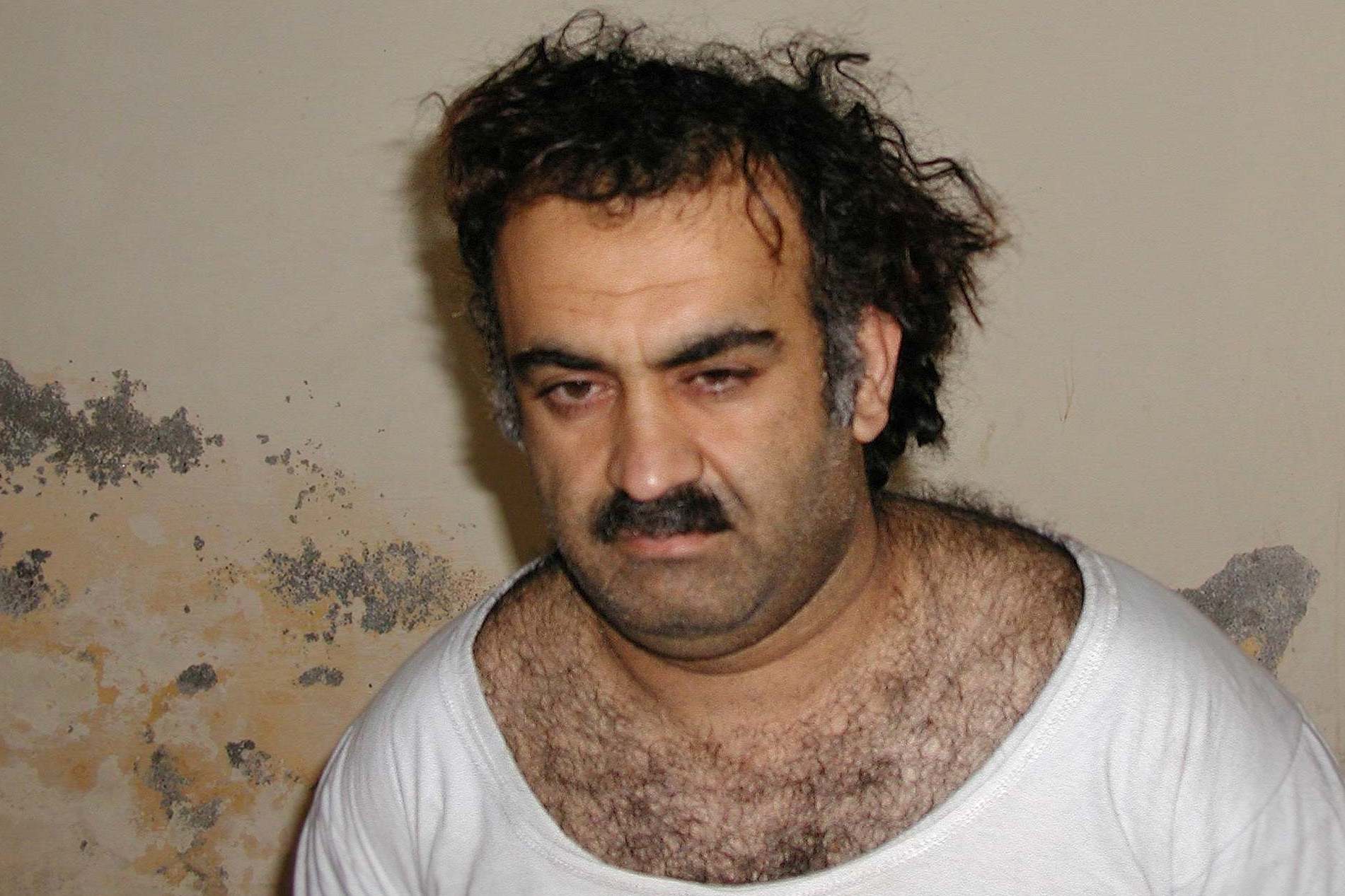Khalid Sheikh Mohammad: Date set for landmark trial against ‘principal architect of 9/11'
Two decades of legal wrangling could end in first court trial of accused 9/11 masterminds

Your support helps us to tell the story
From reproductive rights to climate change to Big Tech, The Independent is on the ground when the story is developing. Whether it's investigating the financials of Elon Musk's pro-Trump PAC or producing our latest documentary, 'The A Word', which shines a light on the American women fighting for reproductive rights, we know how important it is to parse out the facts from the messaging.
At such a critical moment in US history, we need reporters on the ground. Your donation allows us to keep sending journalists to speak to both sides of the story.
The Independent is trusted by Americans across the entire political spectrum. And unlike many other quality news outlets, we choose not to lock Americans out of our reporting and analysis with paywalls. We believe quality journalism should be available to everyone, paid for by those who can afford it.
Your support makes all the difference.A trial date has been set for Khalid Sheikh Mohammad, the man accused of orchestrating the 9/11 terror attacks on the United States.
Mohammad, a senior Al-Qaeda figure branded the “principal architect” of the atrocity, will stand trial in Guantánamo Bay from 11 January 2021 alongside four other men, a military judge ordered.
All five men are charged with war crimes, including terrorism, hijacking planes and nearly 3,000 counts of murder, for their alleged roles masterminding the attacks on New York’s World Trade Centre and the Pentagon.
Judge Col W Shane Cohen admitted “a host of administrative and logistics challenges” could blight the trial, meaning its beginning could be delayed until after the 20th anniversary of the terror event.
They will all face the death penalty if found guilty.
The trial will be a step forward in a prolonged legal battle to bring prosecutions under civilian and military law for the attacks that rocked the world that has seen several previous attempts fail.
Mohammad, who the Pentagon says was involved “from A to Z”, was detained in Pakistan in 2003 and taken to Guantánamo Bay in Cuba, where he was charged and said he would plead guilty ahead of a 2008 effort to trial him.
But it prompted three years of legal wrangling as then-president Barack Obama clashed with Congress over his plan to relocate proceedings to New York so that he could fulfil his pledge to close down Guantánamo. The five men were then charged in June 2011.
Mohammad’s co-defendants are Walid bin Attash, alleged to have run an al-Qaida training camp in Afghanistan for two hijackers and Ammar al-Baluchi, accused of playing a central part in funding the hijackers and their flight school training.
Among them are also Ramzi bin al-Shibh, a Yemeni alleged of planning logistics for the attack, and Mustafa Ahmad al-Hawsawi, a Saudi alleged of supplying cash, credit cards and clothing for the hijackers.
Hearings for the group are scheduled for next month, as lawyers for the defendants try to stop prosecutors from using confessions made to the FBI in 2006, claiming the men did so under duress.
Mohammad claims he was tortured during his stay in Cuba, and CIA documents show he underwent simulated drowning, known as waterboarding, 183 times.
In contrast to the Obama administration policy on Guantánamo, Donald Trump has previously pledged to “load it up with some bad dudes” but has not mentioned the prison as of late.
Join our commenting forum
Join thought-provoking conversations, follow other Independent readers and see their replies
0Comments